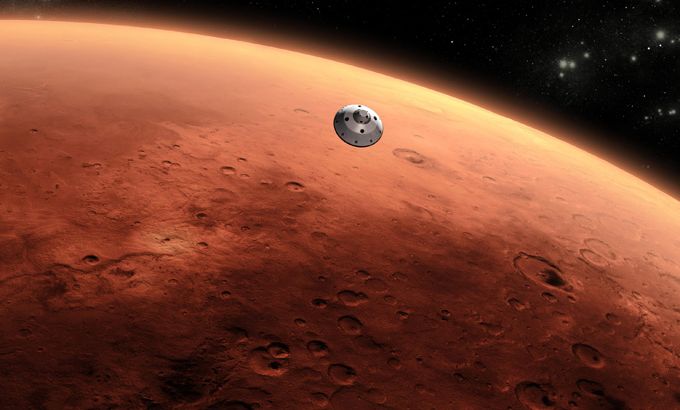US tycoon plans mission to Mars
First-ever space tourist Dennis Tito wants to send a couple on a 501-day journey for a flyby mission to Mars in 2018.

US tycoon and first space tourist Dennis Tito has revealed plans to send a couple on a 501-day journey for a flyby mission to Mars in 2018 in an attempt to inspire future generations and revitalise American science.
Tito said on Wednesday it was important that the mission take place in 2018 because the planets will be closest in their orbital paths. If the opportunity is missed the next chance would be in 2031.
Tito sees the privately funded mission called Inspiration Mars Foundation as a great American undertaking, but he avoided giving any details about the expenses involved and where the money would come form.
“If you have a good idea, you can raise money for it. It’s not that difficult,” said Tito, 72, who became the world’s first space tourist in 2001 using about 20 million dollars of his own money for a trip to the International Space Station on a Russian Soyuz spacecraft.
The mission taking a couple – preferably married – on a flyby just 100 miles (164 kilometres) from the surface of Mars will use the constellation and gravitational power of the planets to bounce the ship back to Earth after orbiting Mars.
It will be a test of endurance and willpower as the man and woman will be in a zero-gravity confined space for more than one and a half years and will be solely responsible for maintaining the ship.
All life support systems will be closed-circuited, meaning water and air will be recycled for the entire duration of the flight.
A test of courage
Jane Poynter, a writer who spent two years living in Biosphere 2, a self-sustaining greenhouse experiment completely isolated from the outside world, said the mission will be hard on the couple psychologically.
“We had mood swings, there was depression … we broke into warring fractions,” said Poynter, a member of the proposed mission’s planning team. “The idea that we have a man and a woman going on this mission is an important idea: they also are going to be a trusted, tested couple.”
Jonathan Clark, a physician at the Center for Space Medicine at Baylor College of Medicine, said zero-gravity and increased radiation in space are the major medical issues.
Clark also admitted that there can be several complications, including the death of one or both astronauts, but said the mission is a test of courage and a way to take humanity to the next level.
“Life is risky, and anything that’s worth it is worth putting it all at stake,” Clark said. “If we wanted a guarantee, we wouldn’t be doing this.”